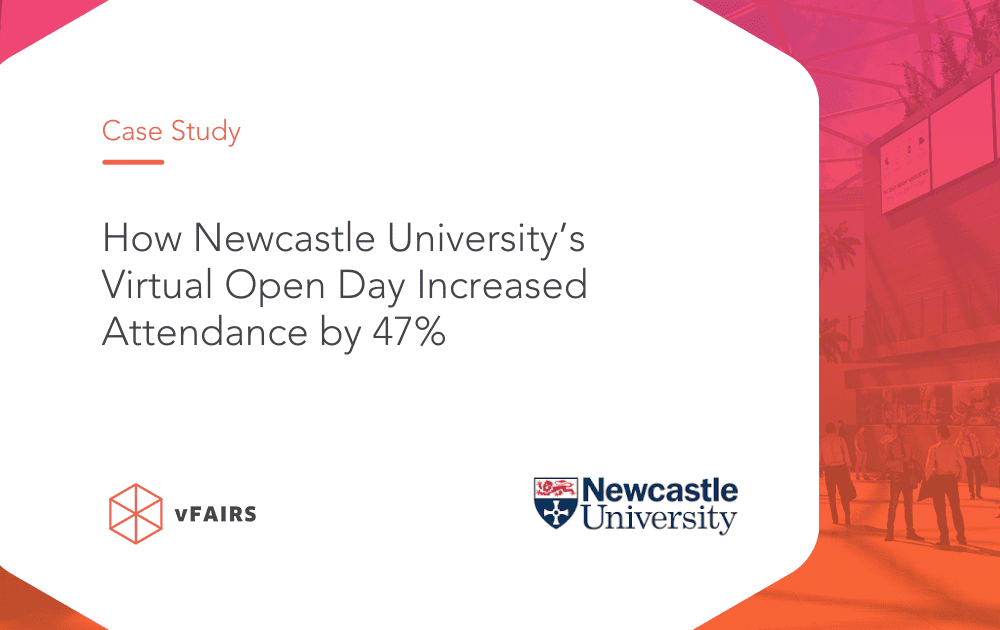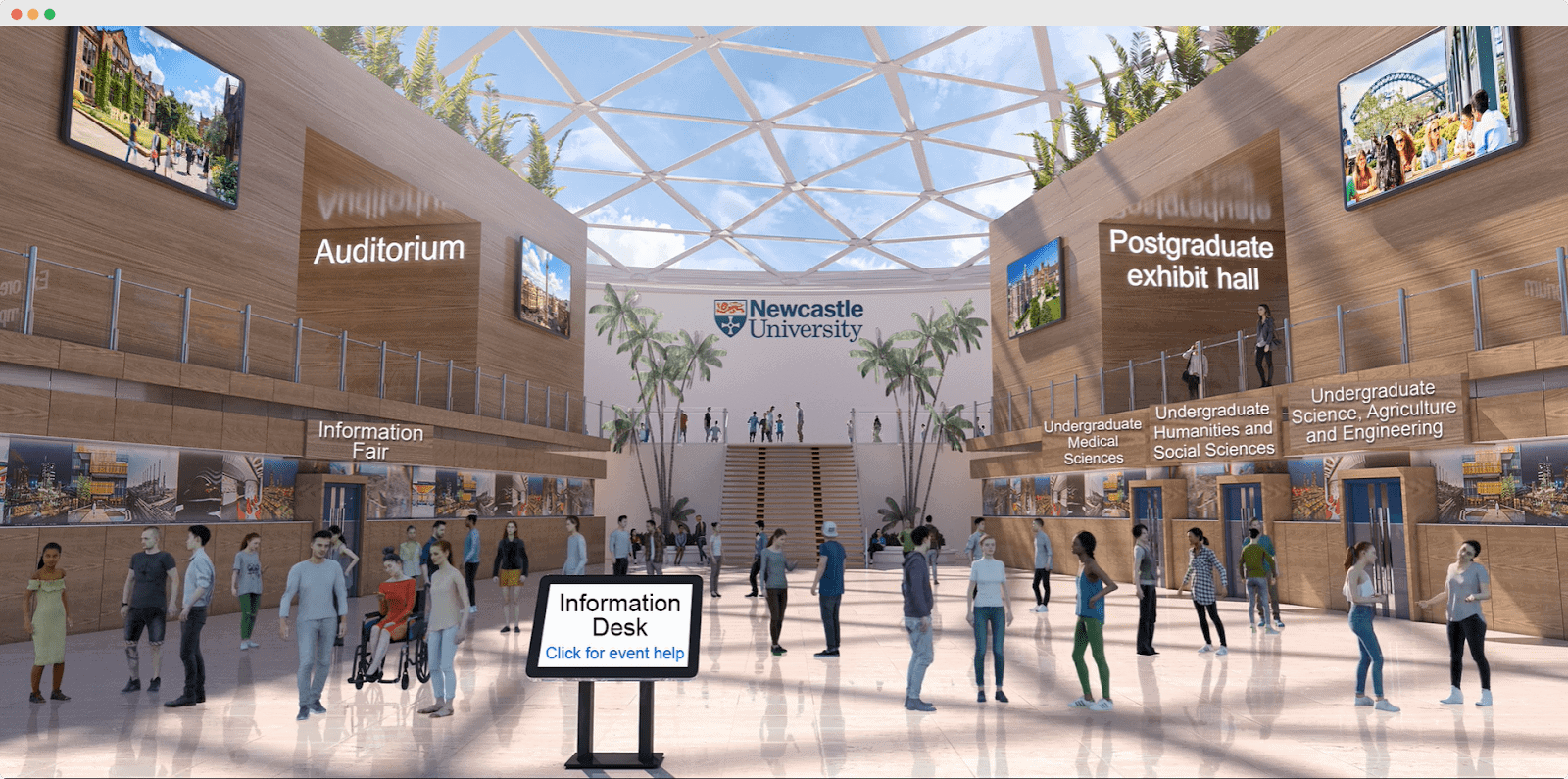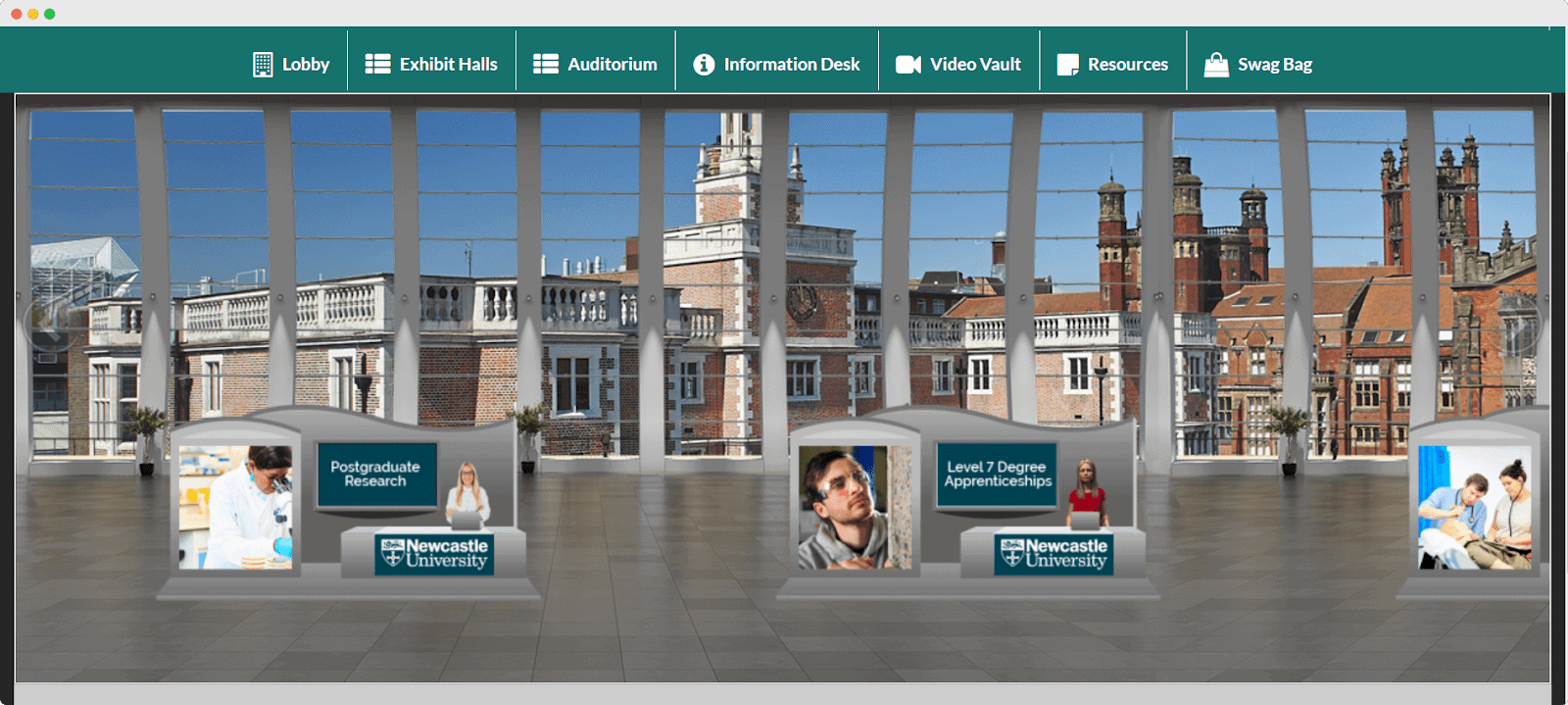Newcastle University, part of a Russel group of universities, is a global university with campuses in Singapore, Malaysia, and the United Kingdom. With a heavy focus on academics, they aim to attract the best students across all disciplines globally. They also aim to widen participation, ensuring the university is accessible to anyone regardless of background and home circumstances.
Historically, their open days have played a vital role in attracting students and helping them make the decision to attend Newcastle University. Hence, when the pandemic struck the world, they had to find an alternative to in-person open days to reach current and prospective students for their undergraduate and postgraduate programs.
Plan your virtual open day with this FREE planning kit from vFairs.
The Challenge
The on-campus open days play a big role in bringing in students for their postgraduate programs. The main challenges for the virtual open day were to:
- Recruit top-quality students by expanding their reach
- Replicate the in-person event in an online setting
- Maximize conversions (from interested students to actually applying)
Why vFairs?
With the decision made to go ahead with virtual events, the next question was who was going to be the virtual event platform provider. The university had set criteria. They required a platform that had live chat options and would allow them to host different types of content, including videos. vFairs was the perfect platform that facilitated interaction and also replicated the in-person event online.
The Solution
These challenges were addressed by carefully putting together a platform that served Newcastle University’s purpose. Let’s explore the strategy that vFairs opted for when creating Newcastle University’s virtual open-day platform.
Animated Lobby
The lobby resembled the in-person open day. The 3D animated lobby was vibrant and colorful. A diverse range of avatars was placed, from different ethnicities to even disabilities. Images from their campuses in the UK, Singapore, and Malaysia were also displayed. The lobby overall was welcoming and attractive to incoming students.
Accessibility Features
The platform also accommodated people with hearing and visual disabilities. It allowed people to increase the font size, use color contrast and listen to the event page description. Adding this feature helped the Newcastle University virtual open day platform to welcome in all students, and widen participation. This was something that they always intended to do with each one of their events.
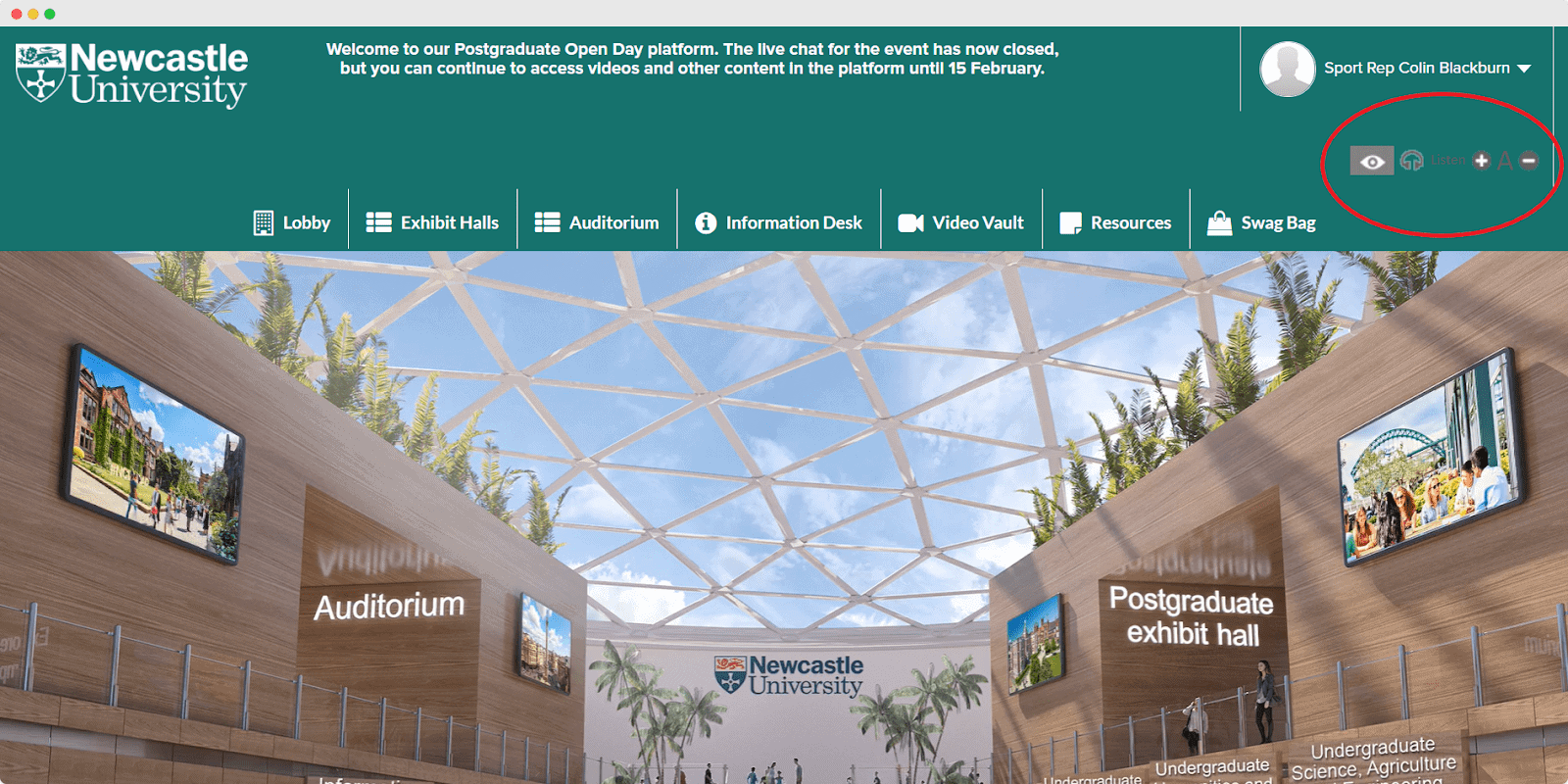
Exhibit Halls
There were four exhibit halls—three for undergraduate students of humanities and social sciences, medical sciences, and agriculture. One exhibit hall was purely dedicated to postgraduate studies. The exhibit hall featured individual booths with the university backdrop. It also had an exhibitor index, so attendees could directly jump to the relevant booth of choice. Attendees could book a meeting with the booth representative via the ‘reserve a chat slot’ feature. Additionally, there was information available on fees and funding to help students get the relevant information.
Auditorium
The virtual auditorium hosted a number of on-demand and live subject webinars. These webinars covered a range of topics, from medical sciences to business school. Webinars focused on individual subjects to help students get the most out of their Newcastle University virtual open-day experience.
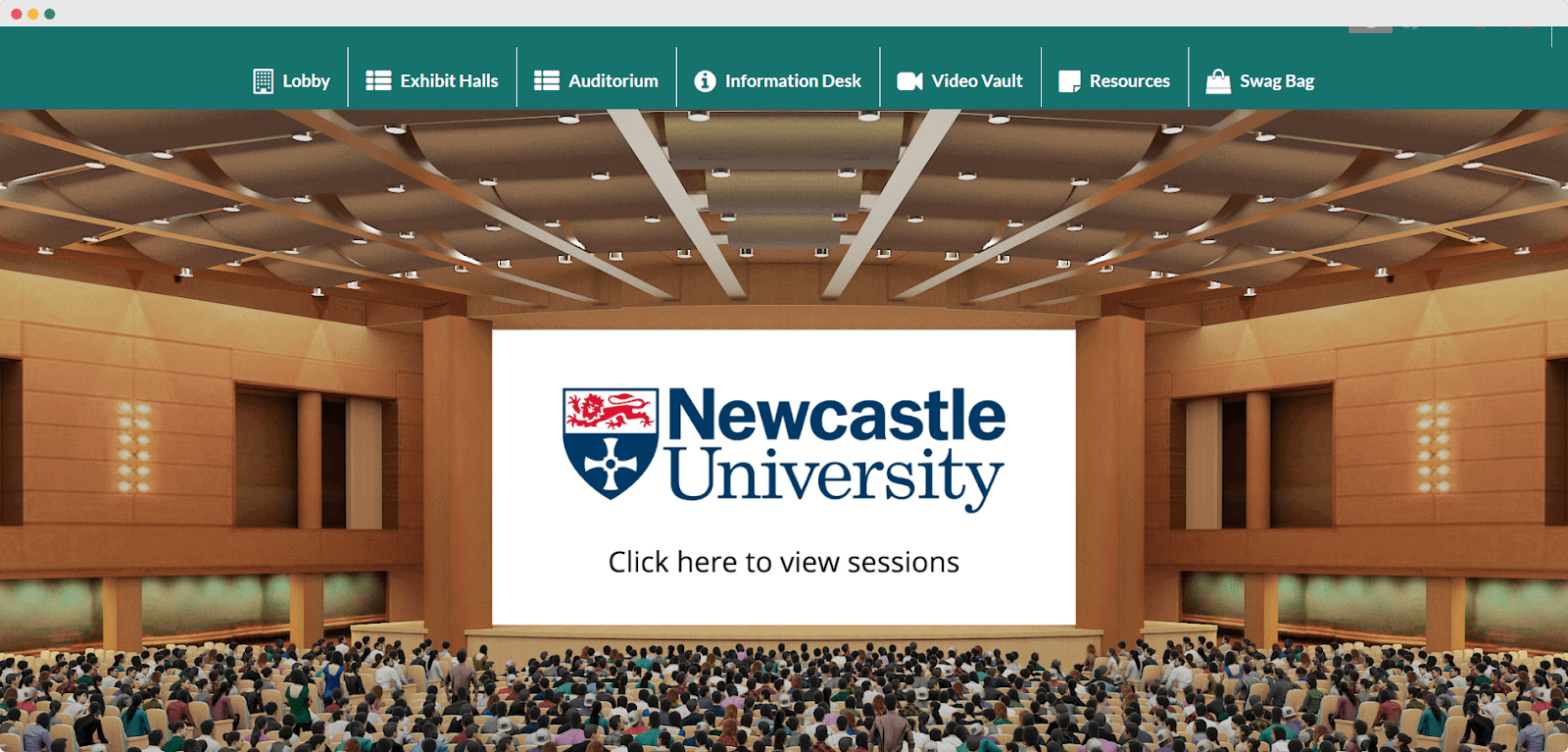
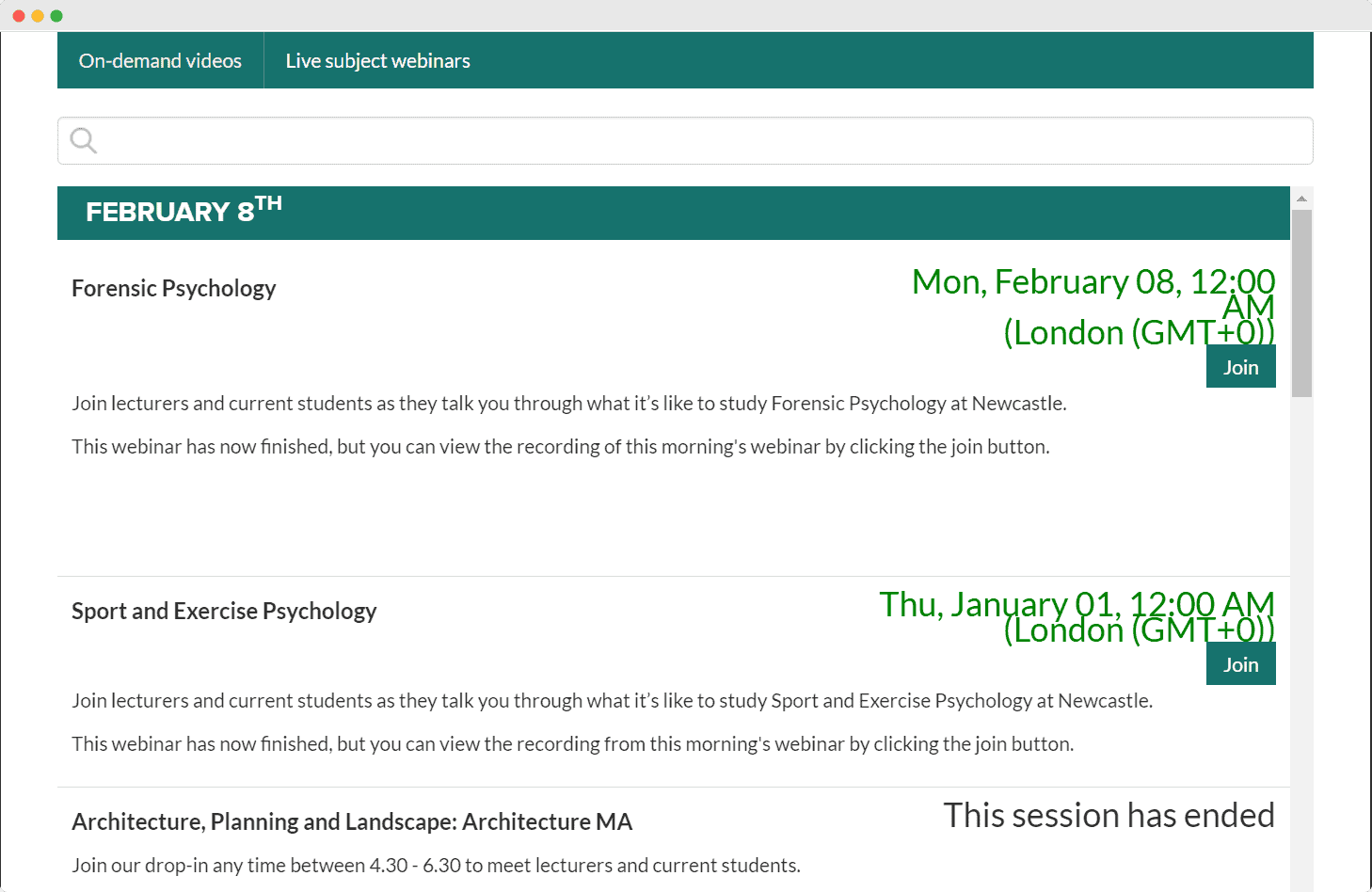
Resources
Attendees had the additional benefit of viewing various videos and documents hosted in the ‘video vault’ and ‘resources’ sections of the platform. Videos on facilities tours, and building tours along with detailed overviews of studying specific courses by university professors were available in the video vault. Resources featured guides, FAQs, subject information, etc. among other useful documents. Attendees could easily download this information in their ‘swag bag’ and even email it to themselves directly from within the platform.
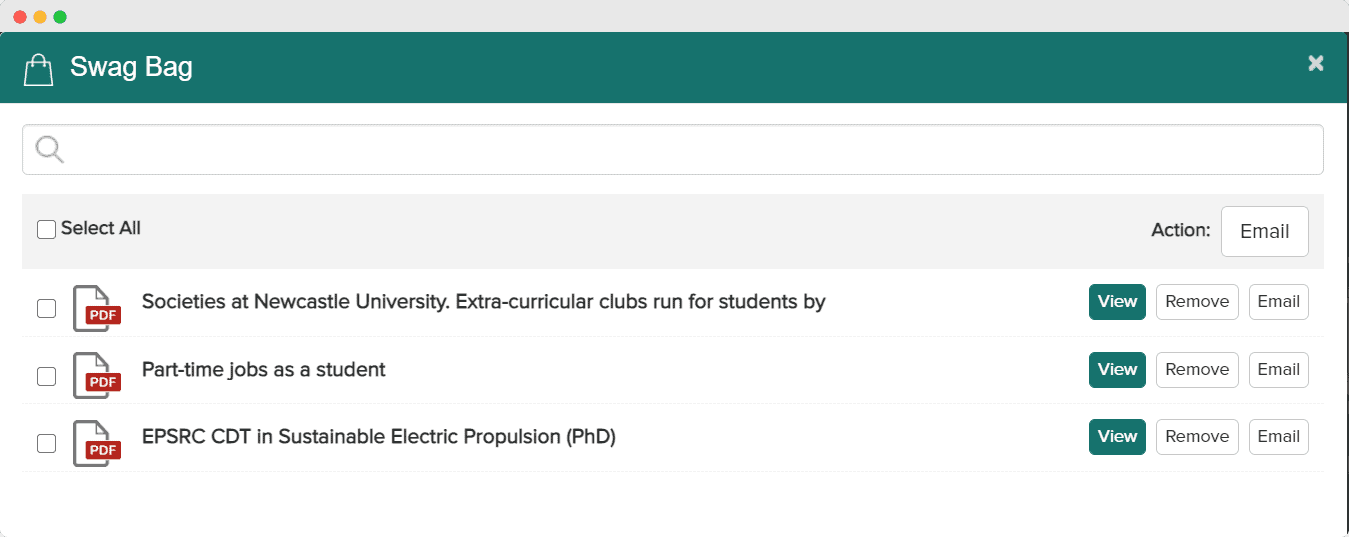
The Result
The Newcastle University virtual open day turned out to be a mega success. Comparing it to the last on-campus event, attendance increased by almost 47%. Moving to a virtual venue also opened up new avenues for the university; they were able to invite international students, who previously couldn’t attend.
Helen Clubbs, Marketing Manager at Newcastle University was happy with the extended reach. She says “The virtual event allowed greater flexibility. They hosted one postgraduate virtual open day in the morning for the Asian market and one in the afternoon for the North American market. They were able to reach two different time zones because of the flexibility this platform grants”. This itself made the event a huge success!

